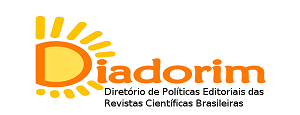RE-READING THE THEORETICAL CONCEPT OF POLARIZATION, AGGLOMERATION, AND CENTRALITY
DOI:
https://doi.org/10.20873/rtg.v4n6p22-36Keywords:
Regional Economy, Polarization, Regional InequalityAbstract
This essay aims to carry out a theoretical survey of the main approaches to regional economics related to agglomeration, centrality and polarization theories. They describe the dynamic self-reinforcing mechanism resulting from externalities due to the agglomeration of industries. For that, an exploratory methodological tool and the guise of the literature were used. The theory of polarization refers to François Perroux and his approach is about the motor industry and the pole of growth. The agglomeration theory of productive activities is the result of the introduction of space in economic analysis. Centrality demonstrates the organization and hierarchization of space, it also presents the pattern of formation of the network of cities and the role of specialization in each of them. It is concluded that the main issue in the analysis regarding the revisited theories is the element of conflict, since they, despite boosting the increase in income and employment in certain areas, at the same time tend to intensify inequalities and the exclusionary character of the productive system.
References
BREITBACH, Á. C. M. Estudo sobre o conceito de região. Porto Alegre: Fundação de Economia e Estatística Siegfried Emanuel Heuser, 1988
BRUE, S. L. História do pensamento econômico. Tradução da 6° edição norte americana. São Paulo: Thomson e Learning, 2006.
CAVALCANTE, L. R. M. T. Produção teórica em economia regional: uma proposta de sistematização. Revista brasileira de estudos regionais e urbanos. Agosto, 2007.
CHRISTALLER, W. Central places in Southern Germany. New Jersy:Prentice Hall, 1966.
DUBEY, V. The definition of regional economics. Tradução Rosamaria Roedel dos Santos. Journal of Regional Science, 5 (2): 25-9, 1964.
Downloads
Published
How to Cite
Issue
Section
License
Revista Tocantinense de Geografia does not remunerate any author for the publication of their texts. The contents of the texts published in this journal are the responsibility of the authors.








.png)












